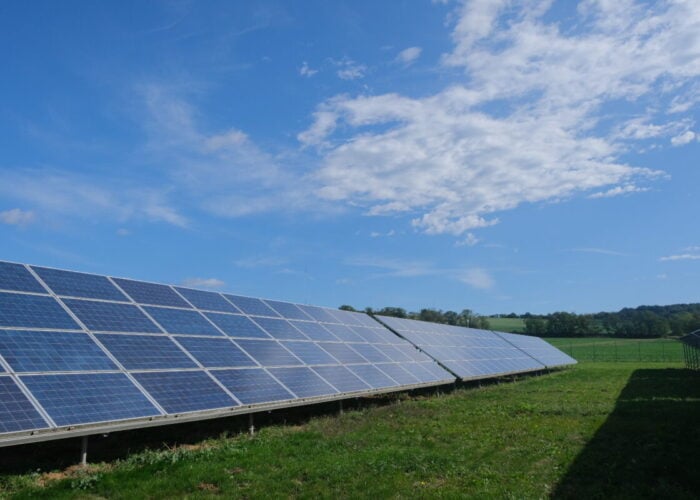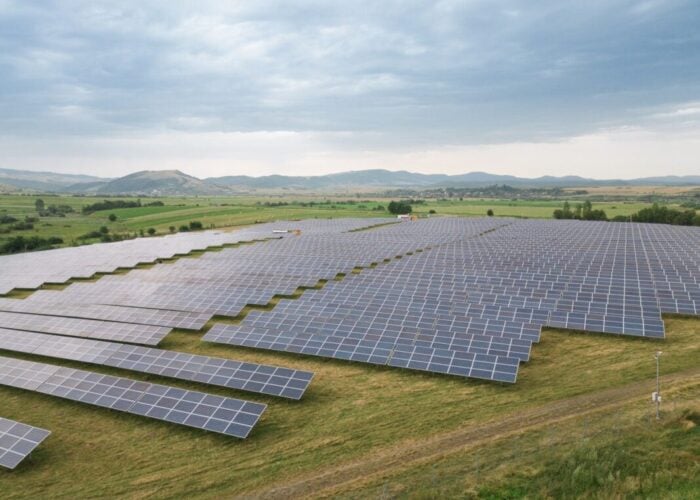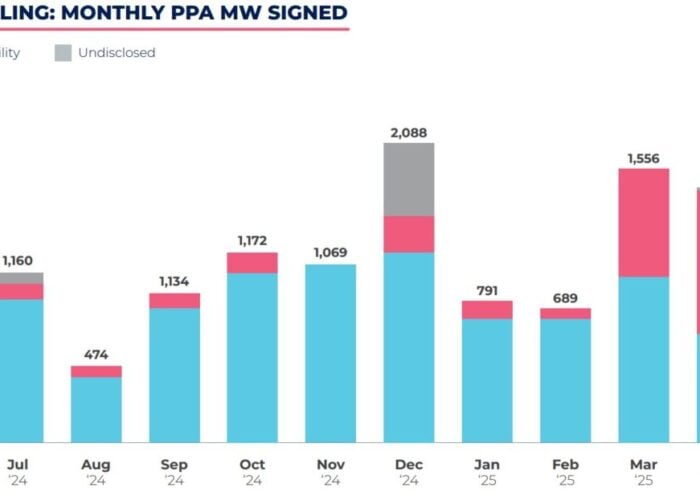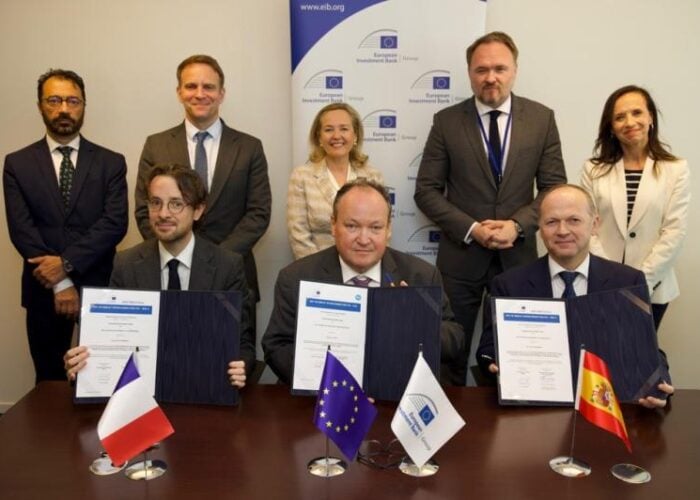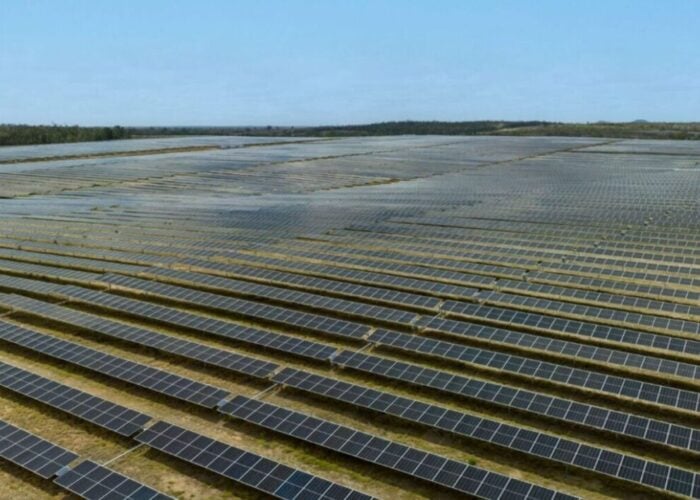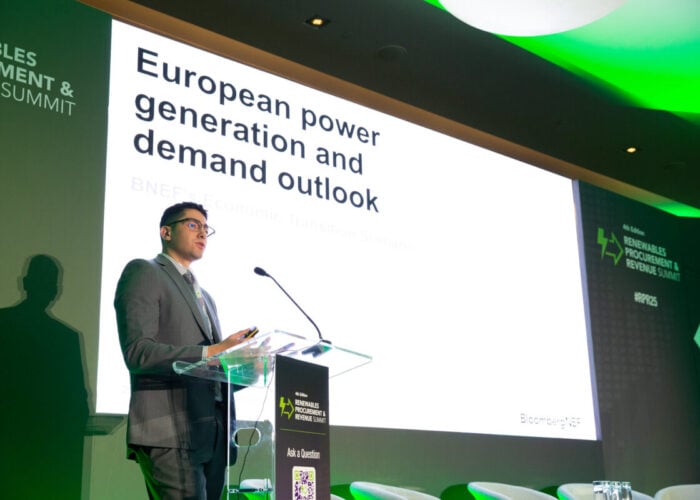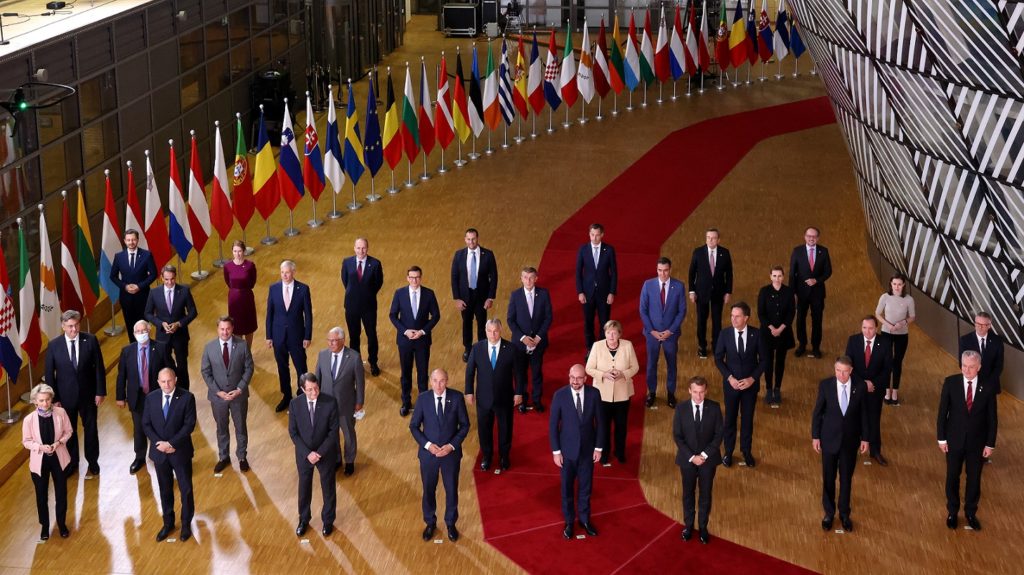
Europe’s leaders have called on the European Investment Bank (EIB) to investigate how to speed up investments in the energy transition to reduce the risk of future energy price crises.
In a meeting last week to discuss the recent spike in energy prices, the European Council, which consists of the heads of state or government of the European Union’s (EU) 27 members, said the EIB should look into accelerating energy transition investments “within its current capital headroom”.
Unlock unlimited access for 12 whole months of distinctive global analysis
Photovoltaics International is now included.
- Regular insight and analysis of the industry’s biggest developments
- In-depth interviews with the industry’s leading figures
- Unlimited digital access to the PV Tech Power journal catalogue
- Unlimited digital access to the Photovoltaics International journal catalogue
- Access to more than 1,000 technical papers
- Discounts on Solar Media’s portfolio of events, in-person and virtual
The EU’s lending arm, the EIB pledged in 2019 to end financing for fossil fuel energy projects by 2022 and has recently provided funding for solar PV plants in markets such as Spain, Portugal and Uzbekistan.
The Council also called on EU member states to make use of a new toolbox from the European Commission that aims to address the immediate impact of current energy price increases.
Published earlier this month, the toolbox encourages long-term renewables power purchase agreements, which it says provide benefits both to industrial electricity users and renewable power producers. The European Commission said it will work with EU countries to facilitate a wider market for PPAs beyond large businesses, including SMEs, for instance by aggregating end-user demand, by addressing relevant administrative barriers or by providing standard contract clauses.
“With these latest Council conclusions, we look forward to EIB support on increasing the adoption of corporate renewables sourcing by a wider range of actors, including SMEs. Today, solar is already insulating millions of Europeans from price shocks, but we must accelerate,” Walburga Hemetsberger, CEO of trade association SolarPower Europe.
Electricity prices have reached record levels in many EU countries in recent weeks, primarily due to global demand for gas soaring as economic activity picks up.
Ahead of last week’s Council meeting, eight energy-intensive industrial associations, representing the paper, aluminium and chemical sectors, among others, joined forces with SolarPower Europe and WindEurope to highlight the need for policymakers to support the transition to renewables.
In a joint letter, the associations said high energy prices are a threat to the European industry’s ability to continue production and to stay competitive in a global market. “Today, we call on the heads of EU states and governments to adopt policy measures capable of ensuring the industry’s access to affordable renewable energy, accompanied by support for energy-efficient solutions,” the letter read.

